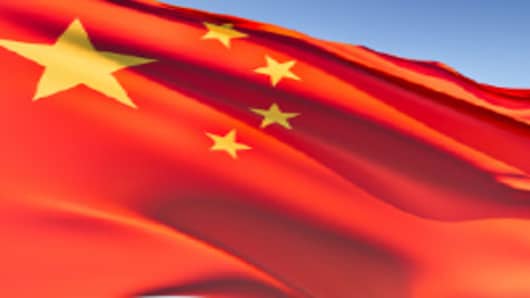Owing to the Great Recession of 2009, we are all intimately familiar with the impact the global economy can have on individuals Americans near and far, from U.S. Capitol corridors to the Wall Street trading floors to the Silicon Valley laboratories to our very own kitchen tables where the financial distresses of the past year were often debated.
But brewing behind the scenes is another economic battle of global proportions, one that also impacts each American on a personal level but has received comparatively little attention from the Obama administration – U.S.-China global trade relations.
China is now the world’s top exporter, with the country’s customs agency releasing figures Sunday showing its 2009 exports exceeded $1.2 trillion. This past year, China also emerged as the world’s largest automobile market and the world’s biggest steel manufacturer.
China’s growing global dominance causes particular concern in light of numerous policy disagreements heating up in Washington. Friction is building between the United States and China, and it’s time for all of us to pay attention. We are on the brink of a trade war with an uncertain behemoth, and recent policy decisions from Washington are fanning the flame.
In the past few months, the United States has imposed anti-dumping duties on Chinese-made pipes and high tariffs to discourage the import of Chinese-made tires. Likewise, China has reciprocated with government regulations that would grant preference to technologies with intellectual property indigenous to China, excluding the U.S. technology industry at large from selling to the Chinese government. The Chinese government has also imposed tight Internet controls on its 300 million users, blocking popular U.S. sites such as YouTube and Facebook and making it exceedingly difficult for individuals to register their own Web sites.
This past month, from the U.N. climate change talks in Copenhagen, China and the United States battled it over their participation in the international accord to curb carbon emissions, with the U.S. delegation demanding that China open its books on efforts to limit Beijing’s carbon footprint and allow experts to review its data. China, arguing they should be considered a developing and not an industrial nation, went so far as to argue the United States should fund their carbon cleanup.
Then, perhaps most contentious is the brewing antagonism and angry diplomatic letter writing over China’s currency. Many elected officials have accused China of deliberately undervaluing its currency against the dollar to give Chinese companies the upper hand in international trade. China’s restrictive currency rules have made it the world’s leading creditor. The nation, in part because of its convertible currency, has amassed a large trade surplus with the United States. U.S. lawmakers have proposed legislation to impose a 27.5 percent tariff on imported Chinese goods until China satisfies concerns over the valuation of its currency.
China’s inadequate level of protection and enforcement of intellectual property rights, questionable government subsidies and misguided technology mandates certainly deserve criticism from the U.S. government, but the Obama administration must reject at trade policy solely focused on enforcement-enforcement-enforcement and move the debate toward openness and dialogue.
Precarious tit-for-tat trade relations between the United States and China has been unfolding against the backdrop of the Obama administration’s uncertain and at time schizophrenic trade strategy.
President Obama and U.S. Trade Representative Ron Kirk have spoken many times about the benefits of open markets to drive economic growth and job creation. Yet, no clear trade strategy has emerged, and pending agreements, including those with Colombia, Panama and South Korea, have faltered for more than two years in Congress. Plus, the “Buy American” provisions in the American Recovery and Reinvestment Act confused many of our trading partners who adopted reciprocal protectionist measures.
President Obama needs to take the lead in creating a proactive dialogue with China President Hu Jintao before this already dangerous trade relationship evolves into a full-on trade war. Senate Majority Leader Harry Reid has been the most vocal actor of the moment, inviting President Hu to participate in bilateral talks per a December 9 letter. But this is a role that the president should play – not a member of Congress.
There is ample blame to go around for how we reached this current situation. But now, more than ever, it is time for the U.S. and Chinese governments to lay down their respective arms and adopt policies that promote openness, a free flow of ideas and technologies, and further market access opportunities.
The United States is an important export market for Chinese goods, and the same is true for U.S. imports to China. All sides stand to gain when trade is open, transparent, and based on rules. This year has been a difficult one, but recovery is on the horizon. But we need common-sense policies based not on political whims but on what will get the global economy moving again.
_________________________
Gary Shapiro is the President and CEO of the Consumer Electronics Association. The trade association represents more than 2,000 U.S. technology companies including Google, Apple and Microsoft. It also hosts the International CES, the world’s largest gathering for consumer technology held each January in Las Vegas.


